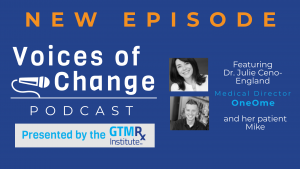Practice Transformation
Amazon will take its telehealth services nationwide. It will immediately expand its Amazon Care telemedicine program to interested employers in Washington and, this summer, will expand to all Amazon workers and to private employers in the US. Currently available to Amazon employees in Washington, the Amazon Care app connects users virtually with doctors, nurse practitioners and nurses who can provide services and treatment telephonically 24/7. In the Seattle area, it also includes in-person services such as pharmacy delivery and house calls from nurses. (AP)
Americans are struggling to afford their regular prescription medication, according to a survey from GoodRx. Thirty percent of those who take medication for an ongoing condition have seen their out-of-pocket prescription drug costs increase in the last year—55.7% saw no change, and 5.5% saw an decrease. Nearly 40% of respondents reported difficulty affording their prescription medications, and over 20% said they struggled to pay for such necessities as food and shelter as a result. (Becker’s Hospital Review; survey results)
Evidence & Innovation
A meta-analysis published in JACC: Cardiovascular Interventions supports pharmacogenomic testing prior to anti-platelet therapy. Such testing helps determine if a patient carries genetic variants in CYP2C19. These variants interfere with the body’s ability to metabolize and activate clopidogrel, an anti-platelet medication. The researchers found that clopidogrel can safely be given to approximately 70% percent of patients with coronary artery disease following percutaneous coronary intervention. (Genome Web*; JACC: Cardiovascular Interventions)
Hospitals are falling short of meeting national targets to reduce inappropriate antibiotic prescribing despite efforts in recent years to bolster stewardship. The CDC found that 56% of antibiotic prescriptions were inappropriate in terms of the type of drug used, the duration for which they were prescribed or the conditions for which they were given. Inappropriate antibiotic use is the largest contributor to the spread of antimicrobial-resistant pathogens. Overall, the CDC estimates 30% of all antibiotic prescriptions are given to treat for infections that don’t need antibiotics. (Modern Healthcare*)
Policy Solutions
Democrats—conservative, moderate and progressive—are united behind an idea that Republican lawmakers and the pharma industry fiercely oppose: authorizing Health and Human Services to negotiate the prices of brand-name drugs covered by Medicare. But they lack the votes in the Senate. Also on the agenda: Democrats want to cap prices so they could not rise faster than inflation and limit how much Medicare beneficiaries pay out-of-pocket each year. (Kaiser Health News)
Many of the Center for Medicare and Medicaid Innovation’s value-based care payment models are undergoing a review, CMS recently told Fierce Healthcare. CMS has been quietly updating and delaying several payment models. Among those affected by delays: the Kidney Care Choices and Geographic Direct Contracting models. However, The CMS has opened applications for the second wave of its Primary Care First value-based payment model. (Fierce Healthcare; Rev Cycle Intelligence)
Note: sources that have an asterisk require login to view the article.
In Case You Missed It!
REGISTER NOW: Building Vaccine Confidence During COVID-19:The Role of the Medical Neighborhood | GTMRx Institute & Bipartisan Policy Center (BPC) April 6 Virtual Event

Vaccinating Americans is critical to preventing severe illness or death from COVID-19 and ultimately stopping the pandemic. It is also essential in getting people back to work, to play and to living. To achieve widespread vaccination, engagement of the medical neighborhood is fundamental when implementing community programs designed to effectively build vaccine confidence. While we have seen encouraging vaccination rates, urgent action is necessary to reach herd immunity which experts estimate would require anywhere from 70% to 90% of the U.S. population be fully vaccinated. The reasons people are skeptical about taking the coronavirus vaccine are complex. Building vaccine confidence requires proactive and thoughtful public awareness, education and engagement of a variety of local stakeholders including community members.
Hear opening remarks from:
- Donald M. Berwick, MD, MPP · President Emeritus and Senior Fellow, Institute for Healthcare Improvement
- Senator William H. Frist, MD · Former U.S. Senate Majority Leader
- Anand Parekh, MD · Chief Medical Advisor, Bipartisan Policy Center
- Katherine H. Capps · Executive Director and Co-Founder, GTMRx Institute (Announcing the GTMRx National Task Force: Building Vaccine Confidence in the Medical Neighborhood)
Hear from the CDC’s Deputy Incident Manager for CDC’s COVID-19 Response:
- Karen Remley, MD · Director, CDC’s National Center on Birth Defects and Developmental Disabilities
Medical Neighborhood Panel discussion moderated by Susan Dentzer, Senior Policy Fellow, Robert J. Margolis Center for Health Policy at Duke University, to include:
- Sree Chaguturu, MD · Chief Medical Officer, CVS Caremark
- Lisa Fitzpatrick, MD, MPH, MPA · Founder and CEO, Grapevine Health
- Bruce Gellin, MD, MPH · President, Global Immunization, Sabin Vaccine Institute
Join BPC & GTMRx April 6, 2021 from 10:30 am – 12:00 noon ET. Register Here.
Find the answers to frequently asked questions, from an employer standpoint, that arise with the implementation of CMM. This document elucidates benefits from a plan sponsor point of view, employee population outcomes, availability of CMM to employees, resolution of medication therapy problems and more.
Developed by Best Practices and Innovative Solutions Subgroup of the Practice and Care Delivery Transformation Workgroup.
Read the document here.

Medication problems generally fall into three buckets: overuse, underuse and misuse of medications. All three can contribute to higher costs and impact patient health.
These problems are detrimental in high risk patients who often lack any single provider managing the whole patient picture. This is where the clinical pharmacist can add incredible value by taking on the role of the medication expert on the health care team and systematically evaluating all the patient’s health issues, medications, lifestyle factors and desired health goals to optimize medication regimens. Read the full post.
Listen here.
Hosted by the GTMRx Institute’s executive director and co-founder, Katherine H. Capps, Voices of Change features leaders who have knowledge, experience and ideas to solve this urgent need to get the medications right. Did you miss the most recent episode?
AmazonSmile is an easy way for 0.5% of your qualified purchases go to the GTMRx Foundation at no cost to you. And signing up is simple—go to smile.amazon.com and select “Get the Medications Right Foundation” as your charity of choice. If you prefer to directly donate instead, you can do so here.
Adding the foundation on AmazonSmile will help us continue to provide no cost educational webinars, issue briefs, weekly news briefs and promote the need for transformation of our current system of medication use through social media campaigns.




